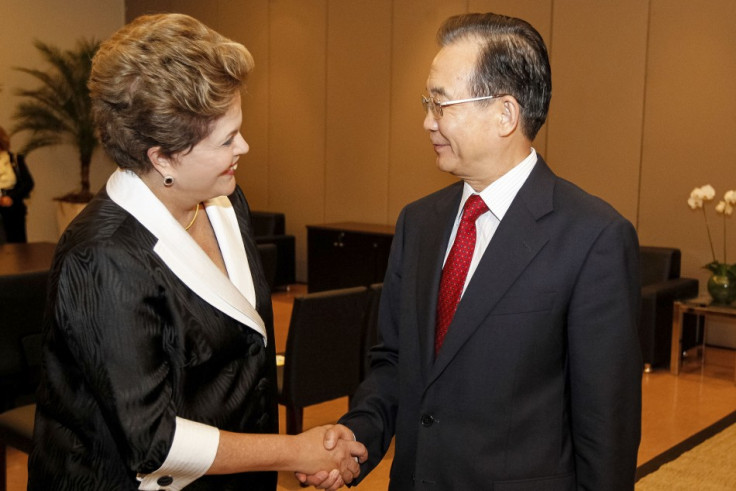China, Brazil Etch $30bn Currency Swap Deal to Strengthen Economies
The deal is seen as part of the efforts by the Brics nations to safeguard their economies against the global economic crisis.

China and Brazil on Thursday agreed to enter into a currency deal equivalent to the amount of $30bn (£19bn) to reinforce their respective economies and to save them from the global economic slowdown.
The amount is seen as a reserve mechanism to handle the global meltdown and to boost the bilateral trade that allows the central banks of the two nations to give out loans in their local currencies.
The move is seen as part of the efforts by the emerging nations to safeguard their economies from the economic crisis to which the rich nations are presently exposed to.
"As international credit remains scarce, we will have enough credit for our transactions," Reuters quoted Brazil's Finance Minister Guido Mantega as saying.
Brazilian President Dilma Rousseff and Chinese Premier Wen Jiabao also signed a series of economic and trade ties at the sidelines of Rio+20 sustainable development summit that include aviation, mining and finance deals.
The deal will allow the Brazilian airplane maker Embraer to manufacture and sell planes in China, an opportunity denied for the company for years in the world's second largest economy.
"The relation with China is greatly relevant for us because it is our most important trading partner. In spite of a potential slowdown, China will keep being the place where to do business, a dynamic economy," said Mantega.
Though China is the biggest export market for Brazil, there were tensions between the countries with relation to trade policies. Brazil complained of barriers on its manufactured products in the Chinese market as wells as flooding of cheap Chinese goods in the domestic market that derails the local economy.
Meanwhile, China blamed Brazil for imposing high tax rates on Chinese-made cars to safeguard the local car assembly industry. China accused Brazil of setting trade barriers on its products ranging from shoes to toys and men's suits.
At the recently concluded G20 Summit, China agreed to provide $43bn (£27.4bn), the highest contribution among the Brics nations, to the International Monetary Fund's (IMF) firewall.
Brics nations, including Russia, India, South Africa apart from Brazil and China are also demanding greater role in the affairs of International Monetary Fund (IMF).
© Copyright IBTimes 2025. All rights reserved.





















